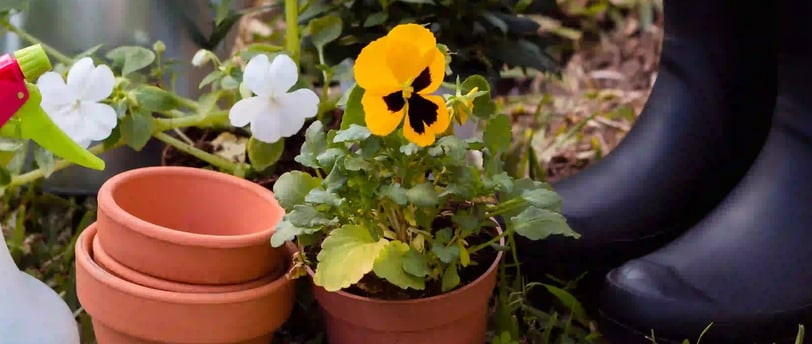Gardening Tips for Beginners
Discover essential gardening tips for beginners. Learn how to start small, choose the right plants, care for your soil, and enjoy a thriving garden with ease.
10/23/20242 min read


Embarking on a gardening journey is an enriching experience that connects you to nature, provides fresh produce, and enhances your living space. If you're new to gardening, here are some essential tips to help you establish a successful garden filled with flowers, vegetables, or herbs.
1. Begin with Simplicity
As a novice gardener, it’s easy to feel overwhelmed by the options available. Start with a manageable area, such as a small garden bed or a few pots. This approach allows you to efficiently manage your time and resources, giving you the flexibility to expand your garden as your experience grows.
2. Select Suitable Plants
Select plants that flourish in your unique climate, soil conditions, and the amount of sunlight your garden receives. For beginners, consider starting with resilient options like tomatoes, radishes, or marigolds, which are known for being low-maintenance and rewarding.
3. Know Your Soil
A successful garden starts with nourishing and maintaining the quality of your soil. Test its pH and nutrient levels to identify necessary amendments. Adding compost or organic material will boost soil fertility and enhance drainage, setting the stage for successful plant growth.
4. Water Effectively
While plants require water, too much can be as detrimental as too little. Water your plants thoroughly but not too often, allowing the soil to dry out between each watering. Watering in the early morning is best, as it minimizes evaporation and helps prevent fungal diseases.
5. Manage Pests Naturally
Pests can pose significant challenges for gardeners. Consistently check your plants for any signs of issues. Employ natural pest control methods, such as attracting beneficial insects like ladybugs or using neem oil, to manage pests while preserving the ecosystem.
6. Explore Companion Planting
Some plants flourish alongside others, while certain combinations can be detrimental. For instance, basil is known to enhance the growth and flavor of tomatoes when planted nearby. Research companion planting techniques to foster a thriving garden environment.
7. Utilize Mulch for Benefits
Applying mulch around your plants serves multiple purposes: it helps retain moisture, suppresses weed growth, and stabilizes soil temperature. Organic options like straw, wood chips, or grass clippings break down over time, adding nutrients back into the soil.
8. Practice Patience and Awareness
Gardening is a journey that requires both patience and keen observation. Pay attention to what works in your garden and what doesn’t. Don’t hesitate to try new methods and learn from each season’s unique challenges and rewards.
9. Engage with a Gardening Community
Connecting with other gardening enthusiasts can provide valuable insights and support. Join local gardening clubs, participate in online communities, or visit community gardens to exchange experiences, tips, and resources with fellow gardeners.
10. Savor the Gardening Experience
Remember that gardening is about more than just the end result; it’s about enjoying the process. Take time to appreciate the beauty of your plants, the serenity of nature, and the fulfillment that comes from nurturing your garden.
Connect with us on social media!
info@extremeshop.com
© 2024. All rights reserved.


